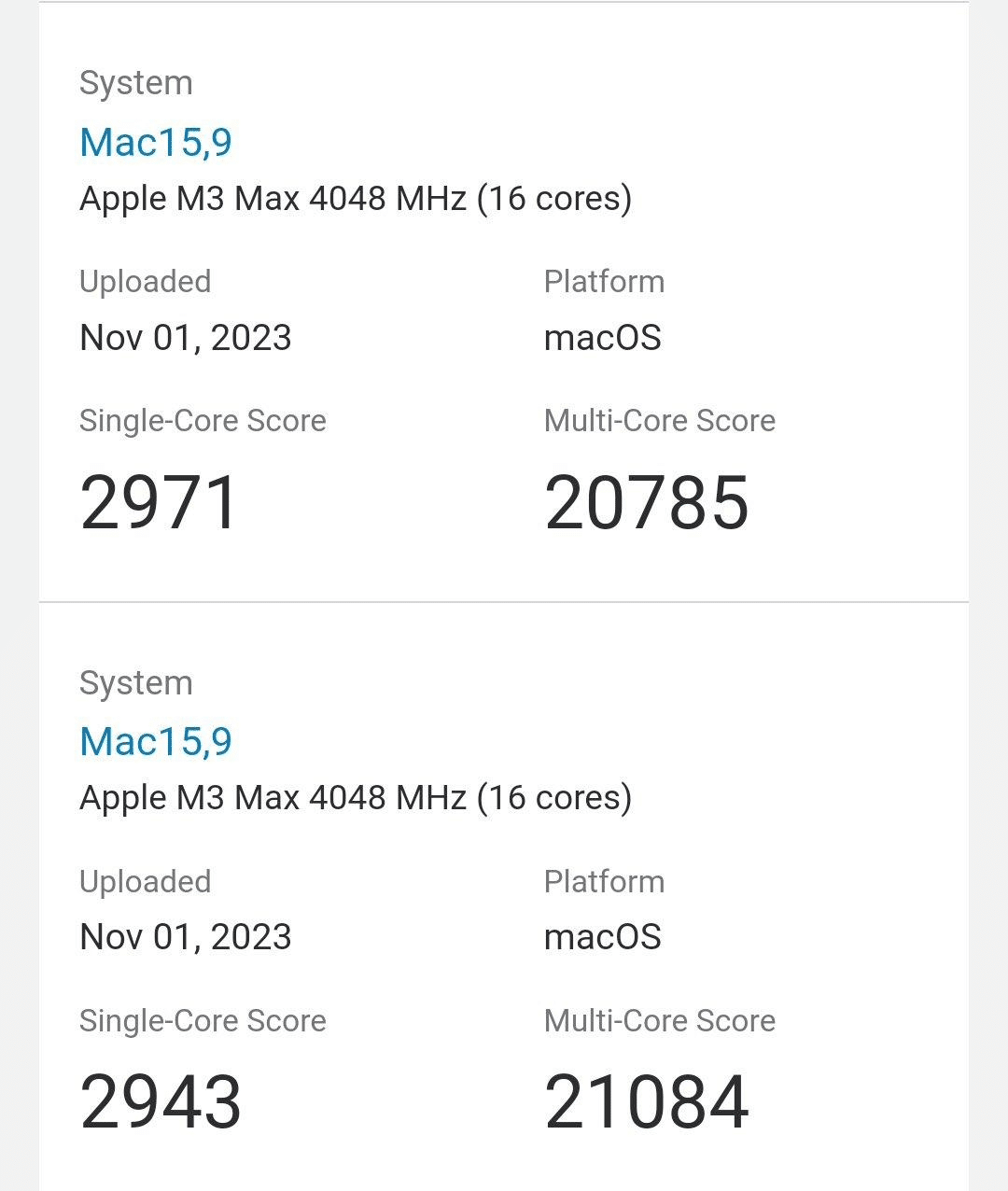In the “Scary Fast” event held over the past two days, Apple officially unveiled the new M3, M3 Pro, and M3 Max chips. Apple stated that the M3 series chips have a rendering speed that can be up to 2.5 times faster compared to the M1 series. The CPU features high-performance cores and high-efficiency cores that are 30% and 50% faster, respectively, than their counterparts in the M1 series. The neural network engine is also 60% faster than the M1 series chips.

Yesterday, the iMac 2023, powered by the M3 chip, appeared on Geekbench with a single-core score of up to 3076 points and a multi-core score of 11863. The first benchmark results for the Apple M3 Max are out, showing a 45% improvement over the M2 Max.
Today, the M3 Max chip also made its appearance on the benchmark platform, and the preliminary results indicate that the high-end models of the Apple M3 series offer a significant performance boost.
According to Geekbench, the device identifier for devices with the M3 Max chip is Mac15,9. Currently, there are four pieces of information available, with the highest single-core score reaching 3151 points and the highest multi-core score reaching 21084 points.
The first benchmark results for the Apple M3 Max are out, showing a 45% improvement over the M2 Max!
In comparison to its predecessor, the M2 Max, which had a single-core score of 1889 and a multi-core score of 14586, this means that the M3 Max’s multi-core performance is approximately 45% better, aligning with Apple’s claim of a 50% improvement range.
Compared to the previous M2 Ultra, with a single-core score of 2692 and a multi-core score of 21231, the M3 Max’s single-core score is 9% higher, with only a 0.6% lower multi-core score.
Currently, the new 16-inch MacBook Pro with the M3 Max chip starts at 27,999 Yuan (about $3825), while the Mac Studio with the M2 Ultra starts at 32,999 Yuan (about $4509), which is a price difference of 5,000 Yuan while offering similar performance.
However, it’s important to note that various factors like environmental conditions, temperature, battery life, background tasks, etc., can slightly affect Geekbench scores during operation.
Furthermore, Geekbench cannot test specific features such as ray tracing support, dynamic cache, or accelerated grid mapping, so the actual performance of the M3 series chips will need to be tested after the products become available.
Read Also: Qualcomm Snapdragon X Elite: Benchmarks Better Than Apple M2